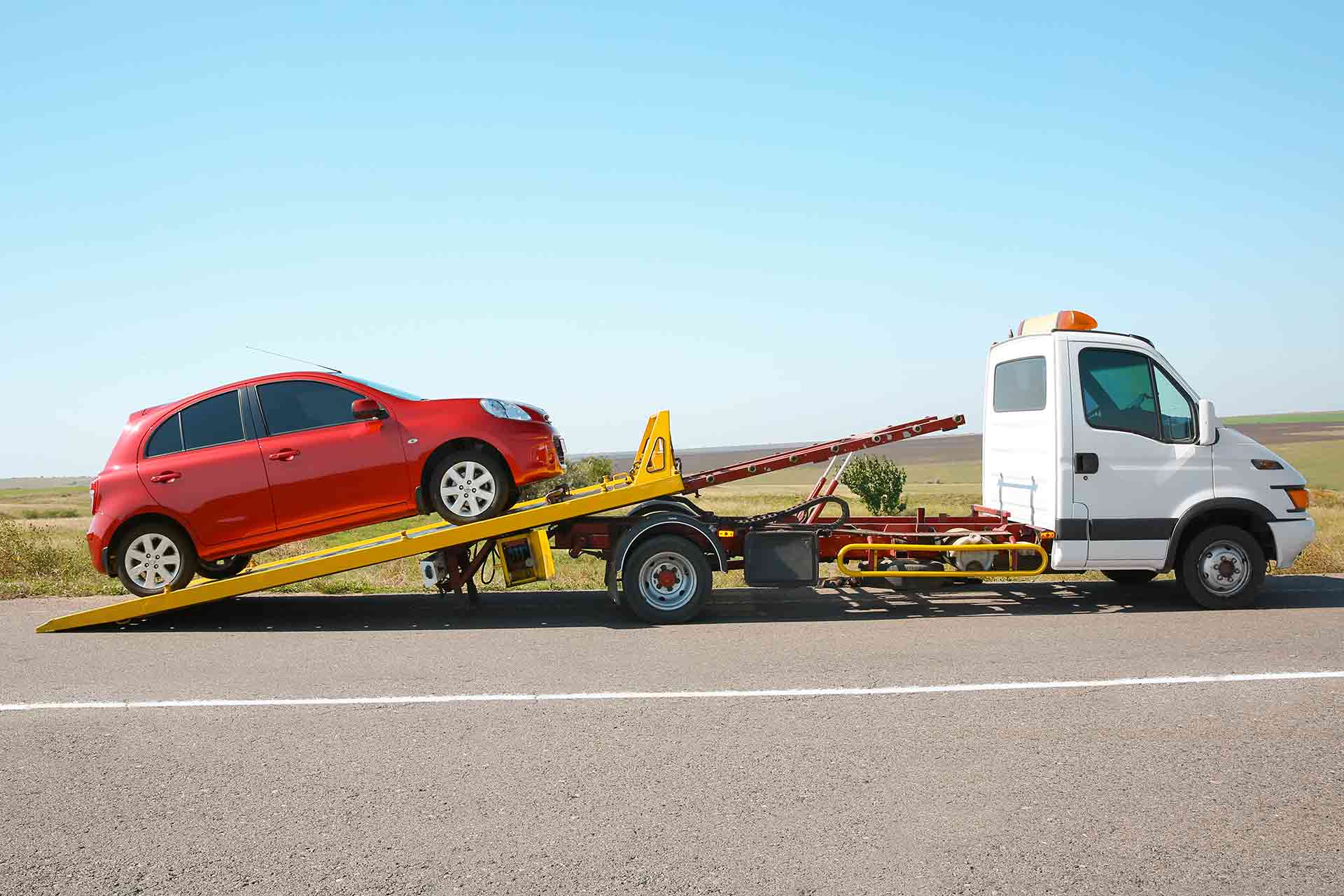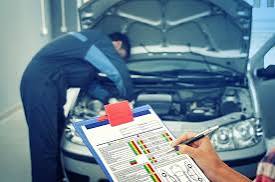When your car breaks down or you need it moved from one place to another, towing services come to the rescue. However, not all towing services are the same. There are two main types: local towing and long-distance towing. Let’s explore the key differences between them in simple terms. Since local towing covers a shorter distance, it takes less time compared to long-distance towing. However, the exact time needed depends on several factors, such as the distance to be traveled, weather conditions, and other factors.
Understanding Towing: An Overview
Before we talk about the differences between long-distance and local towing, let’s first understand what towing is. Towing is when a vehicle is pulled or carried by a special truck or trailer. This usually happens when a car breaks down, gets into an accident, or needs to be moved from one place to another.
When a vehicle needs towing, it’s important to know its size and weight to choose the right towing equipment. Different tow trucks are used for different jobs. For example, flatbed tow trucks are used for luxury cars or motorcycles, while hook-and-chain tow trucks are better for heavier vehicles like trucks and buses.
What is Local Towing?
Local towing refers to the transportation of vehicles over a short distance, usually within the same city or town. It is typically used when a car breaks down, is involved in an accident, or needs to be moved to a nearby repair shop or another location.
Key Features of Local Towing:
- Short Distance: Local towing usually covers distances of less than 50 miles, making it a quick and convenient option for nearby transport.
- Fast Response: Because the towing company is nearby, they can respond quickly to emergencies. If you’re stranded on the road or involved in a minor accident, local towing can get to you faster than long-distance services.
- Affordable: The cost of local towing is generally lower compared to long-distance towing. Companies typically charge based on the miles towed, so shorter trips result in lower fees.
Common Uses:
- Car breakdowns
- Flat tires
- Dead batteries
- Minor accidents
- Illegal parking (when cars need to be removed from certain locations)
- Tow Truck Types: Local towing is usually done with standard tow trucks like flatbed trucks or wheel-lift trucks, which are perfect for transporting cars within the city or town.
In summary, local towing is a quick and budget-friendly service designed for short-distance vehicle transport, ideal for everyday roadside emergencies.
What is Long-Distance Towing?
Long-distance towing refers to the transportation of vehicles over a longer distance, typically more than 50 miles. This service is used when a vehicle needs to be moved from one city to another, across states, or even for cross-country transport.
Key Features of Long-Distance Towing:
1. Longer Distance: As the name suggests, long-distance towing covers more mileage, often spanning hundreds of miles. It is ideal for moving cars between cities, states, or even across the country.
2. Planned Service: Unlike local towing, which is often for emergencies, long-distance towing is usually planned in advance. This is common when relocating, buying or selling a car far away, or moving a non-running vehicle to a specialized repair facility.
3. Higher Cost: Long-distance towing tends to be more expensive because it involves covering more miles and time. The cost factors in fuel, driver wages, tolls, and other expenses related to the trip.
4. Specialized Tow Trucks: While regular tow trucks may be used for short hauls, long-distance towing often requires specialized vehicles like flatbed trucks or enclosed trailers. These trucks ensure the car is safely transported over long distances without damage.
5. Suitable for All Types of Vehicles: Long-distance towing is often used for transporting a variety of vehicles, such as:
– Non-running or damaged vehicles
– Luxury or classic cars needing special care
– Cars being bought or sold between distant locations
6. Extra Protection: Since the journey is longer, many companies offer additional protection, such as using enclosed trailers to shield the vehicle from the elements, road debris, and other potential hazards.
Common Scenarios for Long-Distance Towing:
– Moving to a new city or state
– Relocating a car for a long-distance buyer or seller
– Transporting a classic, luxury, or vintage car for shows or restorations
– Moving a vehicle to a specialized mechanic far from your location
Long-distance towing is a reliable service for transporting vehicles over long distances, often involving careful planning and specialized trucks. It provides a safe and efficient solution for those who need to move cars far from their current location, whether for relocation, sale, or repair.
Difference Between Local Towing VS Long Distance Towing
1. Distance Covered
– Local Towing: This typically involves moving a vehicle within a short range, often within the same city or town. The distance is usually less than 50 miles.
– Long-Distance Towing: As the name suggests, this service is for transporting vehicles over longer distances, usually more than 50 miles. It could be from one city to another or even across state lines.
2. Response Time
– Local Towing: Since the service is nearby, local towing companies can reach you quickly. It’s ideal for emergencies like car breakdowns or accidents where you need immediate assistance.
– Long-Distance Towing: Due to the longer distance involved, it may take more time for the towing company to arrive and complete the service. This type of towing is often planned in advance rather than used for urgent situations.
3. Cost
– Local Towing: The cost of local towing is generally lower because it involves shorter distances. Towing companies usually charge by the mile, so the fewer miles they have to drive, the less you pay.
– Long-Distance Towing: Since this service involves traveling long distances, the cost is higher. Besides mileage, additional factors like fuel, driver time, and road tolls can also increase the price.
4. Purpose
– Local Towing: Most often used for everyday issues like car breakdowns, flat tires, or accidents. It’s a quick and simple solution to get your vehicle to a nearby repair shop or safe location.
– Long-Distance Towing: This is commonly used when you’re relocating, buying or selling a car out of town, or when you need to transport a non-running vehicle to a distant repair facility.
5. Type of Tow Trucks
– Local Towing: Usually handled with a standard tow truck like a flatbed or wheel-lift truck. These trucks are perfect for short-distance hauls and everyday roadside assistance.
– Long-Distance Towing: A more specialized truck, like a flatbed trailer, is often used for long-distance towing to ensure that the vehicle remains secure during the long trip. Some companies also offer enclosed trailers for extra protection.
6. Condition of the Vehicle
– Local Towing: If your car is in decent condition and just needs a short move, local towing is often more than enough. Even if the car is not running, a regular tow truck can handle it.
– Long-Distance Towing: For longer trips, it’s crucial to ensure that your car is safely loaded and properly secured. Long-distance towing is more suitable if your vehicle needs extra care, such as a classic or luxury car, or if it’s completely non-functional.
Benefits of Long Distance Towing
Long-distance towing offers several advantages when you need to move a vehicle over a great distance. Whether you’re relocating, buying or selling a car, or transporting a non-operational vehicle, long-distance towing provides a safe and efficient solution. Here are some key benefits:
1. Convenience
– Long-distance towing takes care of all the logistics of moving your vehicle over long distances, saving you the time and effort of driving it yourself.
– This service is especially useful if you’re moving to a new city or state and don’t want to make the long drive.
2. Safe Transport
– Professional towing companies use specialized trucks, such as flatbeds or enclosed trailers, to ensure your vehicle is safely transported without damage.
– For luxury, classic, or vintage cars, long-distance towing provides extra protection from road debris, weather, and other hazards.
3. Cost-Effective
– While it may seem expensive at first, long-distance towing can save you money in the long run. Driving long distances can wear out your vehicle, cause tire wear, and increase fuel costs. Towing eliminates these risks.
– Additionally, if your car is non-operational, towing is often cheaper than repairing it just to make a long trip.
4. Expert Handling
– Towing companies have experienced drivers who are trained to handle different types of vehicles, ensuring that your car is loaded, secured, and transported with care.
– They also have the right equipment to manage different types of vehicles, including heavy-duty trucks and motorcycles.
5. No Wear and Tear on Your Vehicle
– When your vehicle is towed instead of driven over long distances, it avoids added mileage and wear on parts like the engine, tires, and brakes.
– This is particularly important for high-value vehicles or cars that are not in optimal condition for long-distance driving.
6. Flexibility
– Long-distance towing services can be scheduled according to your timeline, allowing you to plan the transport of your vehicle without having to worry about driving it yourself.
– You can move your vehicle at any time, even if it’s non-functional or unsafe to drive.
Long-distance towing provides a safe, convenient, and reliable way to transport your vehicle over long distances, offering peace of mind and protection for your vehicle. Whether you’re relocating or just need to move your car across the country, it’s a practical solution that saves time, effort, and wear on your vehicle.
Drawbacks of Long Distance Towing
While long-distance towing can be highly convenient, it also comes with a few drawbacks that are worth considering. Here are some of the common disadvantages of long-distance towing:
1. Higher Cost
– One of the biggest downsides is the expense. Long-distance towing is typically more expensive than local towing due to the longer distance covered, fuel costs, driver time, and any tolls or fees along the way.
– Additional services, like enclosed transport for luxury cars, can further increase the cost.
2. Longer Wait Time
– Because long-distance towing involves traveling a much greater distance, it takes more time to complete. This means your vehicle won’t arrive at its destination as quickly as with local towing.
– If you need your car urgently, this can be inconvenient, especially if the transport covers several states or regions.
3. Potential for Delays
– Long-distance travel can be affected by factors like bad weather, traffic jams, or road closures, which can cause unexpected delays.
– In some cases, towing companies may need to reroute or reschedule, leading to longer transport times.
4. Limited Emergency Availability
– Long-distance towing is not ideal for immediate roadside emergencies. It usually needs to be scheduled in advance, and the wait time for the service can be longer compared to local towing.
– If you need fast roadside assistance, long-distance towing may not be the quickest option.
5. Risk of Damage
– Although professional towing services are generally reliable, there is always a small risk of damage, especially over long distances. Road conditions, poor weather, or improper handling during transport can potentially lead to minor damage.
– For high-value vehicles, this can be a concern, even with enclosed transport.
6. Scheduling and Coordination
– Long-distance towing often requires more planning and coordination than local towing. This can involve multiple phone calls to arrange pickup and drop-off times, dealing with permits if crossing state lines, and making sure all necessary paperwork is in place.
– If the towing company isn’t well-organized, the process can become complicated and time-consuming.
While long-distance towing offers a practical solution for moving vehicles over long distances, it does come with a few drawbacks like higher costs, potential delays, and the need for advanced scheduling. Understanding these challenges can help you weigh the pros and cons before choosing this service.
Advantages of Local Towing
Local towing is a convenient and affordable solution when you need to transport a vehicle within a short distance. Whether your car breaks down, is involved in an accident, or needs to be moved to a nearby repair shop, local towing offers several benefits:
1. Faster Response Time
– Since local towing companies operate within a specific area, they can typically respond to your request quickly. This is especially important in emergency situations like breakdowns or accidents, where immediate help is needed.
– Fast response times can save you from being stranded on the road for long periods.
2. Lower Cost
– Local towing is generally more affordable than long-distance towing. The shorter distance means lower fuel costs, fewer tolls, and less time spent by the towing crew, which translates into a more budget-friendly service.
– If you just need your car moved a few miles, local towing is the most cost-effective option.
3. Ideal for Emergencies
– Whether you’ve run out of gas, have a flat tire, or your car won’t start, local towing services are perfect for handling these common roadside emergencies.
– Local towing companies are often available 24/7, making them a reliable option for urgent situations.
4. Convenient for Short-Distance Moves
– If you need to move your car to a nearby repair shop, home, or parking lot, local towing is a quick and simple solution.
– You don’t have to worry about driving your car yourself if it’s unsafe or non-operational.
5. Less Wear and Tear on the Vehicle
– When your vehicle is towed instead of driven, it avoids extra wear and tear on the engine, tires, and brakes. This is especially important if your car is experiencing mechanical issues or if you’re moving it for repairs.
6. Familiarity with Local Areas
– Local towing companies are familiar with the streets, traffic patterns, and shortcuts in the area, which helps them reach your location and transport your vehicle efficiently.
– This local knowledge also helps avoid delays due to traffic or road closures, making the process faster.
7. Variety of Tow Truck Options
– Local towing companies offer a range of tow trucks suited for different types of vehicles, from small cars to larger trucks. This ensures that your vehicle gets the appropriate type of tow, whether it’s a flatbed or wheel-lift truck.
8. No Long-Distance Travel Stress
– You don’t have to worry about planning or scheduling for long trips. Local towing is often a quick, same-day service, which makes it much easier to manage.
Local towing is a fast, affordable, and convenient service for short-distance vehicle transport. It’s ideal for everyday situations like breakdowns, flat tires, or minor accidents, ensuring your vehicle gets to where it needs to be without delay or added costs. Whether you need quick roadside assistance or to move your car to a nearby shop, local towing offers an efficient solution.
Choosing the Perfect Towing Service for Your Needs
When your vehicle breaks down or requires towing, selecting the right towing service is crucial for a stress-free experience. With many options available, it can be challenging to know which company to choose. Here’s a straightforward guide to help you make the best choice:
1. Assess Your Towing Needs
– Type of Tow: Determine what type of towing service you need. Are you looking for local towing (within the same city or area) or long-distance towing (across cities or states)
– Vehicle Type: Consider your vehicle’s size and condition. Some companies specialize in towing larger vehicles, like trucks or RVs, while others may offer services for motorcycles or luxury cars.
2. Check Availability and Response Time
– In case of an emergency, time matters. Look for a towing company that provides 24/7 service and can respond quickly, especially if you are stranded on the road.
– Choose a service that is close to your location, as they will be able to reach you faster.
3. Compare Pricing and Get an Estimate
– Cost: Towing prices can vary depending on distance, the type of tow truck required, and any additional services you may need. Ask for a clear estimate upfront.
– Be sure to check if the company has any hidden fees, like extra charges for after-hours towing, mileage, or fuel surcharges.
4. Research the Company’s Reputation
– Check the company’s reviews and ratings online. Websites like Google, Yelp, and social media platforms can give you an idea of the company’s service quality and reliability.
– Look for companies that have a good reputation for being trustworthy, timely, and professional.
5. Verify Licensing and Insurance
– A licensed company is more likely to follow industry standards, while insurance coverage protects your vehicle from potential damage during the tow.
– Ask the company if they have liability insurance to cover any mishaps during the towing process.
6. Evaluate Their Services
– Look for a towing service that offers more than just basic towing. Companies that provide roadside assistance—like jump-starts, flat tire changes, or fuel delivery—can be beneficial in emergency situations.
– Some companies may also offer additional services like long-distance transportation, heavy-duty towing, or vehicle recovery.
7. Check Equipment and Tow Truck Options
– Different vehicles need different tow trucks. A flatbed truck is ideal for transporting vehicles safely over longer distances, while a wheel-lift truck may be used for short local tows.
– Make sure the company has the right equipment to tow your vehicle based on its size, weight, and condition.
8. Ask About Insurance Coverage
– Review your auto insurance policy to see if it includes coverage for towing services. If it does, find out whether the towing company works with your insurer or can bill them directly.
– If your insurance doesn’t cover towing, ask the company about any package deals or roadside assistance plans they may offer.
9. Look for Good Customer Service
– Pay attention to how the company communicates with you. A good towing service will be clear, polite, and helpful. They should be willing to answer any questions and keep you informed about the process.
– Professionalism in customer service is a good indicator of how well they’ll handle your vehicle.
10. Consider Local Expertise
– Choose a towing company that knows your local area well. They will be familiar with the roads, traffic patterns, and the best repair shops nearby, making the towing process smoother and quicker.
Choosing the right towing service is about more than just finding the cheapest option. It’s important to assess your specific needs, research the company’s reputation, check for licensing and insurance, and ensure they offer the right services. By considering factors like cost, response time, and customer service, you can select a reliable towing company that meets your needs and provides peace of mind when you need it most.
Conclusion
Both local and long-distance towing services are essential, but they cater to different needs. Local towing is quick, affordable, and ideal for short-range emergencies. Long-distance towing, on the other hand, is a more specialized service for moving vehicles over long distances, often requiring more time and a higher budget.
The next time you need towing, consider the distance, your vehicle’s condition, and how quickly you need help. Understanding the difference can help you choose the right service and save time and money!




